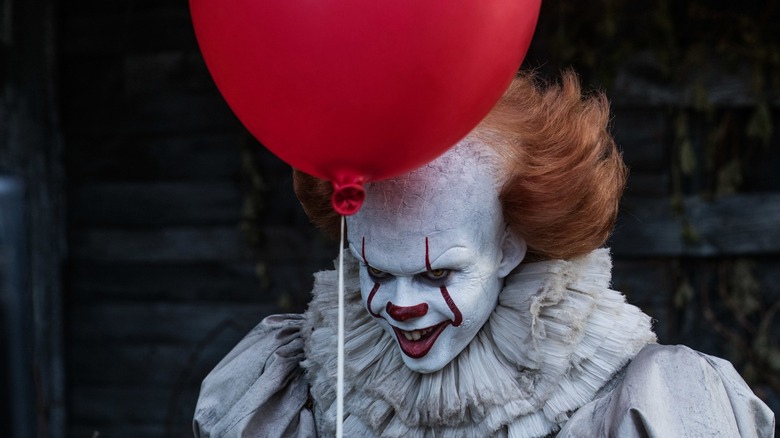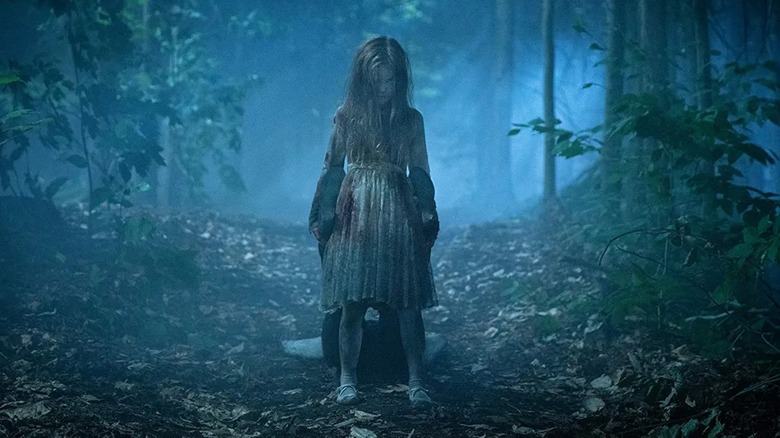Stephen King Expected Two Of His Most Popular Books To Flop
“Dead fields under a November sky, scattered rose petals brown and turning up at the edges, empty pools scummed with algae, rot, decomposition, dust… “
These lines from Stephen King’s “Pet Sematary” capture the disintegration of the natural order like clockwork, doomed to occur at some point, like that of a robust life coming to a close. Death is inevitable, but so is grief, and the raging, intense kind can often tip us over to the other side, where it is tempting to disrupt the cyclical nature of life and death. The Creed family in King’s 1983 novel face this dilemma, where the idea of an ancient burial ground bringing the dead back to life holds unimaginable power over grieving, broken hearts. However, what’s dead must stay dead, as any kind of rebirth will always be tinted with an uncanny aspect, with these resurrected beings looking and feeling “a little dead.”
The compelling nature of “Pet Sematary” does not require much elaboration: King’s raw, accessible writing meshes beautifully with the visceral subject matter, which underlines the unfulfilled yearnings of human existence, including the desire to cling to loved ones after death. Throughout the novel, the mundane everyday is juxtaposed against the unnerving circumstances surrounding the Creeds, creating an unsettling cocktail of emotions that are sustained throughout the narrative.
However, when King wrote “Pet Sematary,” he genuinely believed that “nobody [would] want to read” his novel, as the subject matter was pretty dark and gruesome, even by his standards. In a conversation with NPR, King cited “Pet Sematary” and his 1986 best-selling novel “It” as two books that he deemed would flop (!), but thankfully, they didn’t. If anything, these two entries are some of his most popular works, adapted repeatedly due to the thrilling, enduring nature of these horror tales.
No Stephen King tale is too extreme for his readers
King told NPR about his fears that the two novels — “Pet Sematary” and “It” — would not be welcomed by his readers, but was delighted to learn that it is tough to repulse an audience that appreciates the darker aspects of horror:
“Well, I had one novel called ‘Pet Sematary’ that I wrote and put in a drawer because I thought nobody will want to read this. This is just too awful. I knew what it was going to be about, and I knew that it was going to be about a father who lost his little boy and had to dig him up and rebury him in a different graveyard. And I thought to myself, this is awful. I wanted to write it to see what would happen, but I didn’t think I would publish it. And I got into a contractual bind, and I needed to do a book with my old company. And so I did, and I found out, to sort of my delight and sort of to my horror, that you can’t really gross out the American public [laughs]. You can’t go too far.”
The author went on to state that “the same thing is true with ‘It,’ about the killer clown who preys on children.” King’s “It” got varying adaptation treatments over the years, with the most recent film series helmed by Andy Muschietti further popularizing a seminal tale about childhood fears, bonds forged by trauma, and the horrors that lurked beneath idyllic facades. There are some really dark places that the novel ventures into (that are thankfully omitted in the films), but in the end, there is a sense of catharsis in overcoming evil that has lurked within a town that becomes synonymous with pain and loss for the children who grew up in it.
Keeping these factors in mind, King’s comment about his novels makes sense, but it is also true that good, convincing horror will always have a home, no matter how morbid or bleak it might be.
















Post Comment